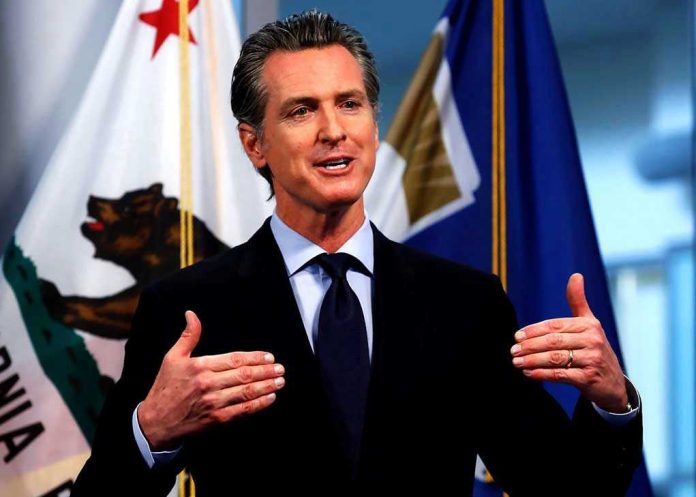
A new policy threatens law enforcement’s operational integrity, sparking concerns among conservatives.
Story Highlights
- California bans law enforcement from wearing masks, raising security concerns.
- Critics argue the policy undermines police effectiveness and safety.
- Supporters claim the move enhances transparency and accountability.
California’s Controversial Legislation
In a move that has drawn sharp criticism from law enforcement and conservative groups, California Governor Gavin Newsom signed a bill prohibiting most law enforcement officers from wearing masks during operations. The legislation, touted by supporters as a step towards greater transparency, has been met with backlash from those who believe it compromises the safety and effectiveness of police forces.
Concerns Over Officer Safety and Effectiveness
Critics of the new mandate argue that banning masks for law enforcement officers poses significant risks. Masks are often used during sensitive operations to protect officers’ identities and ensure their safety. Without this anonymity, officers may become targets, jeopardizing both their personal security and their ability to perform duties effectively. The policy raises questions about balancing transparency with practical security needs.
Debate Over Transparency and Rights
Proponents of the legislation argue that it promotes transparency and accountability in policing. They believe that visible, identifiable officers foster trust within communities. However, law enforcement agencies emphasize the need to protect officers’ identities during undercover and sensitive operations. This debate highlights ongoing tensions between public accountability and operational security within the law enforcement community.
As California leads the way with this controversial policy, other states may watch closely to gauge its impact on police operations and public safety. The broader implications of such legislation remain to be seen, particularly concerning its influence on law enforcement practices nationwide.
Gov. Newsom signs bill banning Law enforcement from wearing masks https://t.co/zVVJPkzrc3 via @YouTube excuse us remember we the people that voted for Ice not a legitimate governor to tell us what they do Friends of the original https://t.co/CmIrYb9Ndv
— Michelle Mitchell AFBMLA (@4678d346c6754ac) September 22, 2025
With the new policy in place, law enforcement agencies and conservative groups continue to voice concerns about the potential risks and challenges it introduces. As the debate unfolds, the outcome may set precedents for future policies regarding law enforcement transparency and operational security.
Sources:
Business Insider: YouTube history and growth
SurgeGraph: Ownership, timeline, and platform evolution
Wikipedia: Founding, development, and cultural impact
Additional context from Wikipedia’s detailed history page



